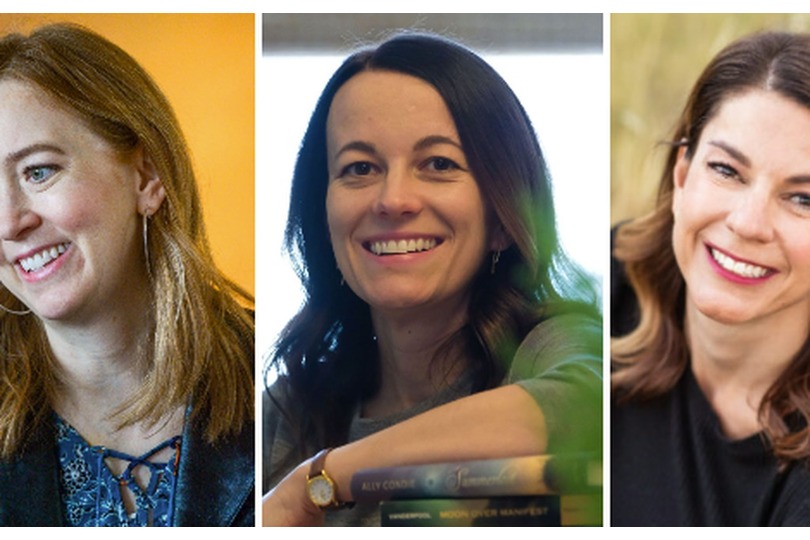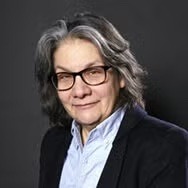Authors from Utah Sign a Letter Denouncing the "Plague of Book Banning"
on Sep 19, 2022

More than 40 Utah children's book authors and illustrators have signed an open letter in advance of Banned Books Week (September 18-24) to condemn recent efforts to ban or suppress books in Utah schools and libraries.
The letter, which was published as an op-ed in The Salt Lake Tribune on Sunday, comes amid heated debates about school censorship across the country. The Alpine School District, Utah's largest school district, took 52 books from the library shelves in August, with another 32 marked for future review.
"As Utah authors and illustrators of books for young readers, we condemn the efforts to suppress, demonize, and ban books from our state's schools and libraries," writes Shannon Hale, author of the best-selling "Princess in Black" children's books, the young adult "Princess Academy" series, and the for-adults comic novel "Austenland."
According to the letter, "these attempts overwhelmingly target books by and about LGBTQ people, as well as books by and about Black people, Indigenous people, and people of color." These groups have historically been underrepresented in books."
In an interview, Hale stated that she wrote the letter because she was concerned about "the mood of the country" and that the "vitriol and hatred is scary to see as a parent and writer", especially after the strides in the publishing industry has made in terms of diversity in the last decade, thanks to organizations such as We Need Diverse Books and others.
"When I first started writing children's books, 80% of the characters were white and male," Hale explained. "More than 80% of the population is not white or male." "We had a representation issue."
That's the crux of the problem, according to Hale: people are uncomfortable seeing themselves represented.
"Suddenly, people who grew up expecting books to be about white, straight people are seeing something different: more representation of what's actually out there." And it's making a lot of people nervous," Hale explained.
The process of actually banning a book is more difficult than one might think based on how frequently the phenomenon appears in the news. Earlier this year, Salt Lake County librarians noted that Utah doesn't see a lot of banned books, but the themes that have consistently been targeted remain the same: racial diversity, LGBTQ+ representation, and coming-of-age.
According to Hale, one unintended consequence of the censorship's rapid spread is that "so many kids who were finally seeing themselves validated in books as human beings and as those worthy of stories" are now being targeted.
"What stories and books do is validate and teach empathy; they do not transform people," Hale says. "Kids feel validated when they read about themselves." It gives them the feeling that they have a right to exist."
In the letter, Hale also mentions the tragic statistic that suicide will be the leading cause of death among Utah's young people aged 10 to 17 and 18 to 24 in 2020.
Another author who signed the letter is Ally Condie, the author of the dystopian young-adult series "Matched," which has previously faced threats of being banned or censored.
According to Condie, reading a book is the equivalent of walking a mile in someone else's shoes for children. "It doesn't make sense to us as authors that you would want to take away that shared experience, that (chance) to learn more about each other as human beings," she explained.
It's one thing for a parent to read a book and decide it's not a good fit for their child — something Condie understands as a parent — but making a "unilateral statement" for all children feels like a "dangerous road to go down."
"It's not a nice thing to do, and it's also not a Utah thing to do," she explained. "We believe in personal freedom, in allowing people to make their own decisions, and in free agency."
The letter was also signed by Lindsey Leavitt, author of the "Willis Wilbur" series. She, like Condie, was a teacher in the past.
Leavitt mentioned a Sign-Up Genius list in Davis County that includes books for parents to read. "I'm not doing it to 'open myself up to the human experience.'" "It's with the intention of [later] challenging the books," she explained.
According to her, the process is based on a star system that determines how "naughty or dangerous" a book is. She also mentioned a spreadsheet that shows where each of the books can be found.
"Parents sometimes think, 'Well, if I expose my child to this, it'll make them that way,'" she said. It's something she considered when she first read Hale's letter and considered the power we, as a society, assign to words, she said.
When it comes to book banning, Utah lawmakers, for example, have a habit of using the word "pornographic," according to Leavitt. "When we start labeling anything that isn't the Utah norm as pornographic, that's what it dilutes to," she explained.
When Hale was in high school, she claimed that 95% of the books she was assigned to read were written by straight, white men with straight, white men as main characters. "I did not become a straight, white man," she explained.
This ongoing battle involves more than just children, parents, and librarians. Authors have also faced some criticism. Hale claims she has been labeled a "groomer" for encouraging children to be themselves.
Leavitt's book is due out in a few weeks, and she's been working with a school booking agent to arrange free visits. Teachers and librarians respond that they must obtain extensive clearance before allowing her to visit.
"I've never had an experience like this where I want to come and connect with these kids and they say, 'Let me get back to you in the spring,'" Leavitt said.
Condie mentioned that as straight, white women, she, Leavitt, and Hale haven't had many of the negative experiences that other authors, particularly those of color or LGBTQ+, may have. As an author, one of the most devastating things you can hear is that a story you wrote can't be true or doesn't matter to anyone, according to Condie.
"We ask our Utah school districts, library boards, state and local governments, and all those in power to reject these divisive, hate-mongering attempts to limit whose stories are worth telling," the letter concludes. Maintain the freedom and equality that we have all been promised."

.jpg)
.jpg)
.jpg)
.jpg)
.jpg)
.jpg)

.jpg)

.jpg)
.jpg)

.jpg)
.jpg)
.jpg)
.jpg)










Sorry! No comment found for this post.